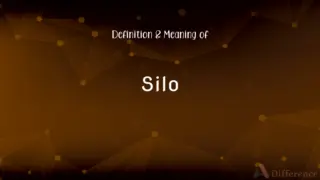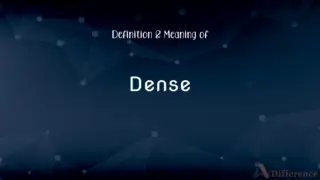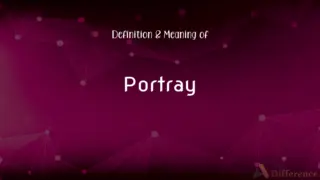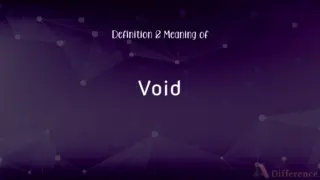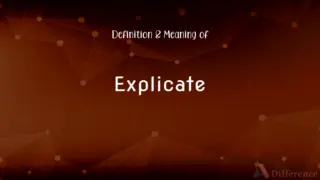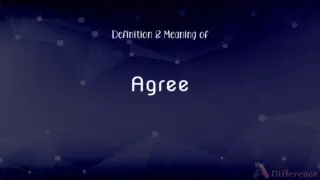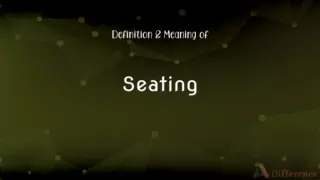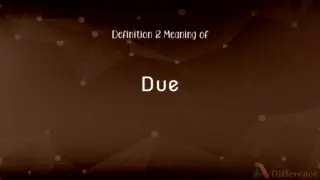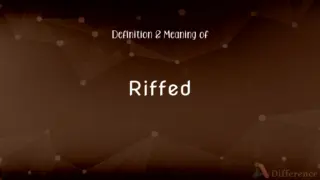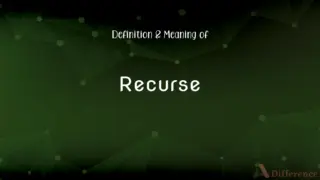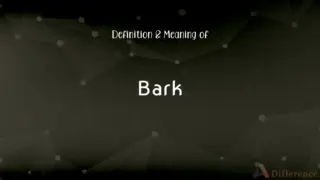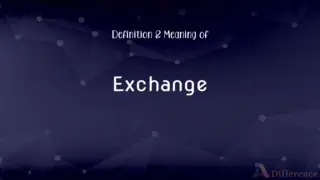Fantasise Definition and Meaning
By Fiza Rafique & Urooj Arif — Published on June 18, 2024
Fantasise refers to imagine or create vivid mental images, often involving scenarios that are highly desirable or markedly idealistic. e.g., She would often fantasise about traveling to distant planets.
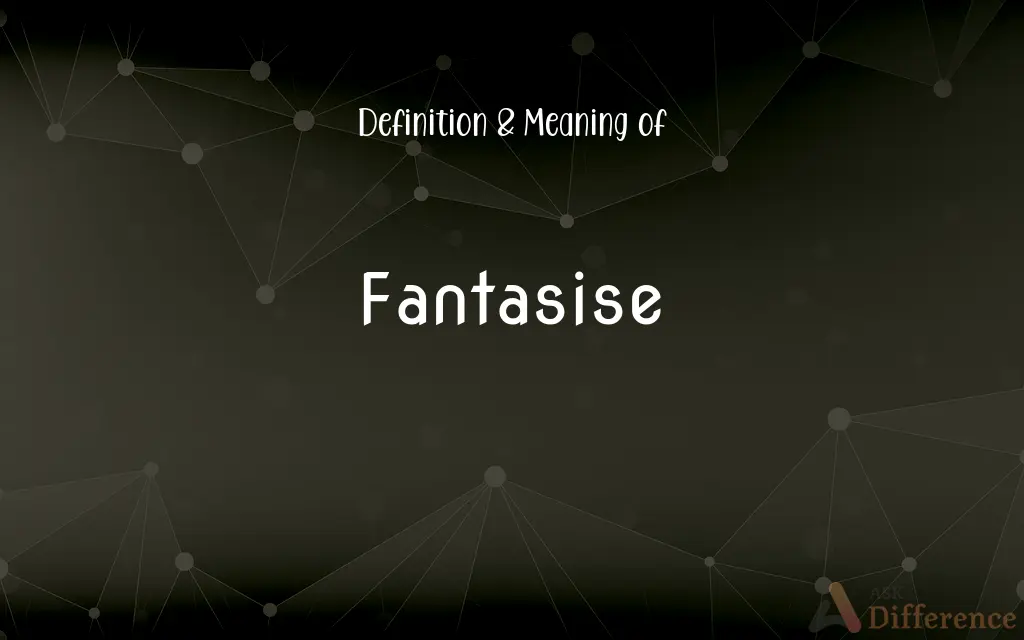
Table of Contents
Fantasise Definitions
To envision scenarios that fulfill personal desires or aspirations.
She would fantasise about opening her own bakery.
To think about something with great intensity and imagination, especially unreal situations.
They would fantasise about future technologies that could change the world.
To indulge in daydreaming about something very pleasant but highly unlikely to happen.
He fantasised about winning the lottery every day.
To imagine oneself in a better or more successful situation.
During long meetings, he would often fantasise about being on a sunny beach instead.
To escape reality by imagining enjoyable and pleasant events.
To deal with stress, he would fantasise about simpler times.
To form mental images of things not present to the senses or unlikely to occur.
She fantasised about moving to Mars if life on Earth became unsustainable.
To entertain thoughts not grounded in reality, often used as a form of mental escape.
After watching the movie, she would often fantasise about being a superhero.
To create imaginative and fanciful stories in one's mind.
As a child, she would fantasise about adventures in enchanted forests.
To dream or consider unrealistic possibilities in a creative or artistic manner.
As an artist, he would fantasise about surreal landscapes for his paintings.
(intransitive) To indulge in fantasy; to imagine things only possible in fantasy.
He's so hot. I used to fantasise about him constantly.
(transitive) To portray in the mind, using fantasy.
Indulge in fantasies;
He is fantasizing when he says he plans to start his own company
Portray in the mind;
He is fantasizing the ideal wife
To play scenarios in the mind that are highly imaginative or fictional.
The writer would fantasise about plots and characters for his next novel.
Fantasise Snonyms
Visualize
To form a mental image of; envisage.
He visualizes winning the race every night before he sleeps.
Daydream
To have a series of pleasant thoughts that distract one from the present.
She often daydreams about quitting her job to travel the world.
Dream up
To invent or conceive of something in one's imagination.
She dreamed up a plan to meet her favorite celebrity.
Ponder
To consider something deeply and thoroughly.
She pondered the idea of moving to a new city for hours.
Muse
To be absorbed in one's thoughts; engage in meditation.
He mused on the possibilities of a new career path.
Imagine
To form a mental image or concept of something, especially something not present.
He imagines a future where peace prevails globally.
Conjure up
To bring a thought or image to mind, as if by magic.
He conjured up images of his childhood home.
Envision
To picture in the mind; imagine.
She envisions a career that makes her happy and fulfilled.
Speculate
To meditate on a subject; reflect.
He speculated on the changes technology might bring to his profession.
Build castles in the air
To create fanciful or impractical ideas or schemes.
She's always building castles in the air about a life filled with adventure and romance.
Fantasise Idioms & Phrases
Fantasise about the impossible
To daydream about scenarios that are extremely unlikely.
He often fantasises about the impossible, like becoming an astronaut at his age.
Fantasise Example Sentences
They would often fantasise about winning a gold medal.
It's easy to fantasise about being rich and famous.
Sometimes, it's nice to just sit back and fantasise about the future.
She liked to fantasise about living in a different era.
He would fantasise about all the places he wanted to visit.
As a child, he would often fantasise about becoming a superhero.
He used his commute to fantasise about different career paths.
She would fantasise about the novel she wanted to write.
At night, she would fantasise about different ways to improve her art.
Common Curiosities
How is "fantasise" used in a sentence?
e.g., Whenever he felt overwhelmed, he would take a moment to fantasise about quieter, peaceful places.
How many syllables are in "fantasise"?
There are three syllables in "fantasise".
Why is it called "fantasise"?
"Fantasise" comes from the Greek word "phantasia," which means appearance, imagination, or apparition, indicating the creation of mental images.
What is a stressed syllable in "fantasise"?
The stressed syllable in "fantasise" is the second syllable, "ta".
What is the second form of "fantasise"?
The second form of "fantasise" is "fantasised".
What part of speech is "fantasise"?
"Fantasise" is a verb.
How do we divide "fantasise" into syllables?
Fantasise is divided into syllables as "fan-ta-sise".
What is the pronunciation of "fantasise"?
Fantasise is pronounced as /ˈfæn.tə.saɪz/.
What is the root word of "fantasise"?
The root word of "fantasise" is "phantasia" from Greek, meaning a display, imagination.
What is the third form of "fantasise"?
The third form of "fantasise" is "fantasised".
What is another term for "fantasise"?
Another term for "fantasise" is "daydream".
Is "fantasise" a negative or positive word?
"Fantasise" is generally positive, associated with creativity and imagination, though it can have negative connotations if it leads to unrealistic expectations.
Is "fantasise" a vowel or consonant?
"Fantasise" starts with a consonant.
Is the word "fantasise" imperative?
"Fantasise" can be used in the imperative mood in commands, e.g., "Fantasise about a better future."
What is the verb form of "fantasise"?
The verb form of "fantasise" is "fantasise".
What is the first form of "fantasise"?
The first form of "fantasise" is "fantasise".
What is the opposite of "fantasise"?
The opposite of "fantasise" could be "ignore" or "disregard", referring to not engaging in imaginative thought.
Is the word “fantasise” a Direct object or an Indirect object?
"Fantasise" is a verb and does not function as an object.
What is the plural form of "fantasise"?
There is no plural form for the verb "fantasise".
Which vowel is used before "fantasise"?
There isn't a specific vowel used before "fantasise" as it is a verb.
Is "fantasise" a noun or adjective?
"Fantasise" is a verb.
Is "fantasise" an abstract noun?
"Fantasise" is a verb, not a noun.
Is "fantasise" a countable noun?
"Fantasise" is not a noun; it is a verb.
Is the word "fantasise" Gerund?
"Fantasising" is the gerund form of "fantasise".
Which determiner is used with "fantasise"?
As a verb, "fantasise" does not typically use determiners.
Which preposition is used with "fantasise"?
Prepositions such as "about" (e.g., "fantasise about being an astronaut") are commonly used with "fantasise".
Which conjunction is used with "fantasise"?
Conjunctions aren't specifically associated with "fantasise"; usage depends on sentence structure.
Which article is used with "fantasise"?
As a verb, "fantasise" does not use articles.
What is the singular form of "fantasise"?
The singular form is "fantasise".
Is "fantasise" an adverb?
No, "fantasise" is not an adverb.
Is "fantasise" a collective noun?
"Fantasise" is not a noun; it is a verb.
Is the "fantasise" term a metaphor?
"Fantasise" itself is not a metaphor but can be used metaphorically to describe creative or imaginative activities.
Share Your Discovery
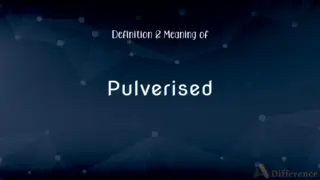
Previous Term
Pulverised Definition and Meaning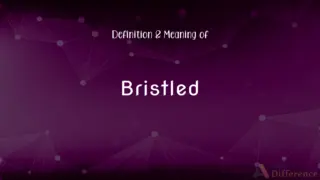
Next Term
Bristled Definition and MeaningAuthor Spotlight
Written by
Fiza RafiqueFiza Rafique is a skilled content writer at AskDifference.com, where she meticulously refines and enhances written pieces. Drawing from her vast editorial expertise, Fiza ensures clarity, accuracy, and precision in every article. Passionate about language, she continually seeks to elevate the quality of content for readers worldwide.
Co-written by
Urooj ArifUrooj is a skilled content writer at Ask Difference, known for her exceptional ability to simplify complex topics into engaging and informative content. With a passion for research and a flair for clear, concise writing, she consistently delivers articles that resonate with our diverse audience.









